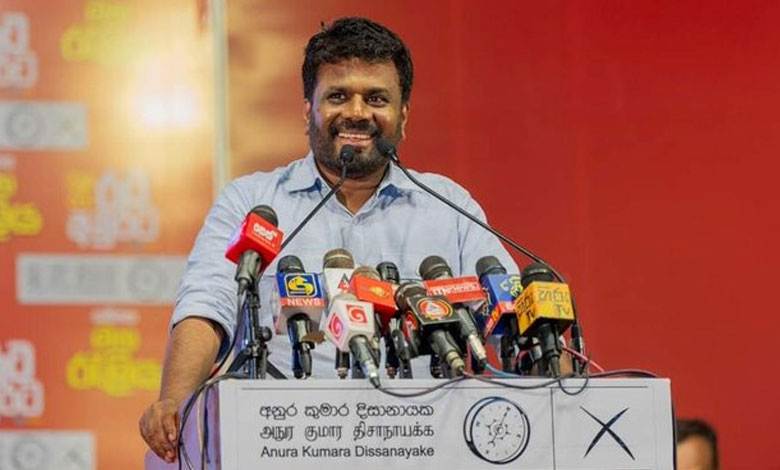From a Laborer’s Son to Sri Lanka’s President: Anura Dissanayake’s Remarkable Journey
In a historic first for Sri Lanka, Anura Dissanayake, a leader with Marxist economic views, has been elected as the country's president. Dissanayake, the son of a laborer, won the presidency at the age of 55, marking the first time a leftist leader has taken the top office in Sri Lanka’s history.

Colombo: In a historic first for Sri Lanka, Anura Dissanayake, a leader with Marxist economic views, has been elected as the country’s president. Dissanayake, the son of a laborer, won the presidency at the age of 55, marking the first time a leftist leader has taken the top office in Sri Lanka’s history.
The Election Commission announced Dissanayake’s victory, where he secured 42.31% of the vote, defeating opposition leader Sajith Premadasa. His journey from a humble background to becoming a revolutionary political figure and now president has captivated the nation.
Born in 1969 in a working-class family far from Colombo, Dissanayake leads the Janatha Vimukthi Peramuna (JVP) party, known for its Marxist ideology and its role in two failed uprisings. The JVP, which reveres figures like Che Guevara, has evolved from a rebellious movement into a major political force in the country.
Dissanayake’s office in Colombo is adorned with portraits of communist icons such as Karl Marx, Vladimir Lenin, Friedrich Engels, and Fidel Castro, reflecting his ideological roots. He entered politics through student movements in the 1980s and became an active member of JVP during its anti-government campaign between 1987 and 1989.
The JVP first led a failed uprising in 1971 against the socialist government of Prime Minister Sirimavo Bandaranaike, an event that claimed 20,000 lives. Dissanayake was a student leader during the JVP’s second unsuccessful rebellion in the 1980s but later transitioned the party to non-violence after taking leadership in 2004.
While once a staunch opponent of privatization, Dissanayake’s policies have softened over time, and he now supports an open economy. He even issued a public apology for past actions and distanced his party from violence.
Dissanayake’s rise to power was bolstered by Sri Lanka’s economic crisis in 2022, where the JVP positioned itself as an anti-corruption force. His promise to end the country’s corrupt political culture resonated deeply with citizens facing financial hardships.
In his manifesto, Dissanayake vowed, “For the first time in Sri Lanka’s post-independence history, governance will shift from the control of a few corrupt elite families to a true people’s government.”
While Dissanayake has improved relations with India since 1987, he is also considered close to China. Today, he is set to take the oath of office at the Presidential Secretariat in Colombo.
